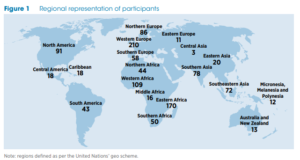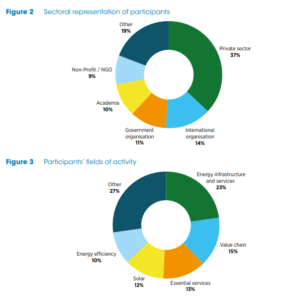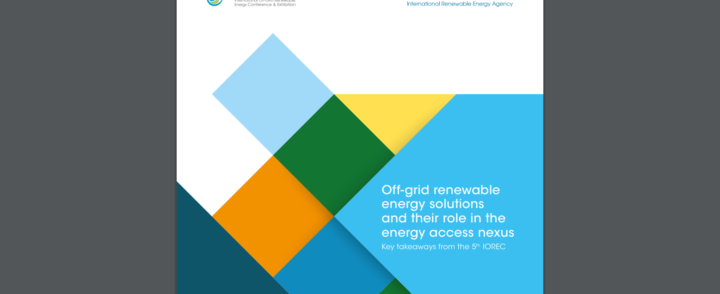Off-grid Renewable Energy Solutions Key Takeaways from the 5th IOREC
The 5th International Off-grid Renewable Energy Conference and Exhibition (IOREC) provided partners with the opportunity to present their initiatives, exchange best practices and facilitate the identification of synergies and partnerships.
The outcomes and key takeaways from the event presented in this report provide insights on the interventions; learnings and deliberations on enabling policies; financing schemes; innovative business models; and technology applications for scaling up off-grid decentralised renewable energy for access.
The 5th IOREC was held virtually on 7-9 December 2021 due to the constraints posed by the on-going COVID-19 pandemic. The three-day event included interactive, thematic plenary and deep-dive sessions providing the opportunity for experts to deliberate on the design and implementation of enabling frameworks; policies; tailored financing for accelerated off-grid renewable energy deployment; emerging and innovative business models; and technology advancements for stand-alone and mini-grid systems. The IOREC places a special focus on the socio-economic aspects of off-grid renewable energy, exploring the nexus of off-grid renewable energy and key development priorities such as clean cooking, education, food security, health care, economic development and livelihoods. Parallel conversations on clean energy and climate action converged in discussions on how off-grid solutions can help to achieve countries’ Nationally Determined Contributions (NDCs). Deliberations explored business models to procure clean energy for peacekeeping missions and sustain distributed renewable energy (DRE) systems to electrify remote and indigenous communities. IRENA’s partner organisation, the Alliance for Rural Electrification (ARE), provided services that helped participants network across sectors and regions through online platforms.


Source: IRENA



